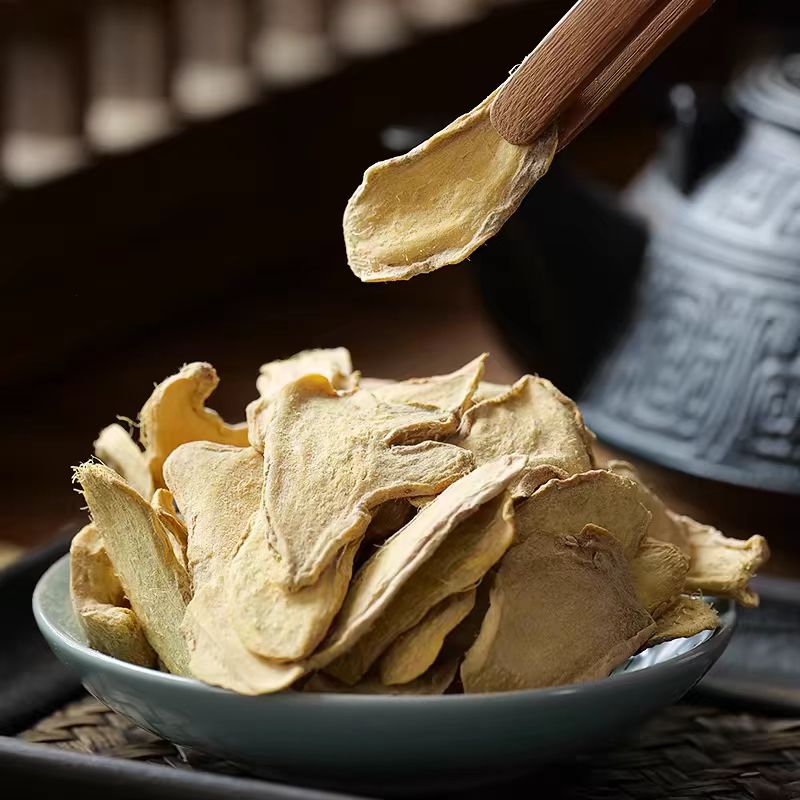- 2024-11-18 02:30:26
- source: 本站
 A Comprehensive Guide to Dehydrated Ginger Flakes
A Comprehensive Guide to Dehydrated Ginger Flakes
Ginger, scientifically named Zingiber officinale, has been a staple in culinary and medical traditions across the globe for centuries, prized for its distinct flavor and health-promoting properties. One particular way to enjoy this potent root year-round is through its dehydrated form, specifically as ginger flakes. This article aims to provide an exhaustive guide to dehydrated ginger flakes, exploring their production, benefits, culinary applications, and more.
The Process of Dehydration
Dehydration, or drying, is a method used to preserve food by reducing its water content, thus inhibiting the growth of bacteria, yeasts, and mold. Dehydrated ginger flakes start with fresh, carefully selected ginger roots. Here's an overview of the dehydration process:
Selection: High-quality, mature ginger roots are chosen to ensure the best flavor profile.
Cleaning: The ginger roots are washed to remove dirt and impurities.
Slicing or Grating: They are then sliced thinly or grated, depending on the desired size of the end product.
Blanching: To preserve color, texture, and taste, ginger slices often undergo blanching before drying.
Drying: The slices are spread out in specialized food dehydrators or under controlled conditions like in solar dryers. This stage is crucial, as too hot a temperature can lead to flavor loss or burning, while inadequate drying can leave too much moisture, leading to mold.
Grinding (optional): Some manufacturers then grind the dried ginger into powder or flakes, the latter being more manageable for certain recipes.
Packaging: Once dried, the ginger flakes are packaged to prevent reabsorption of moisture, ensuring long shelf-life.
Nutritional Benefits
Dehydrated ginger retains many of the benefits of fresh ginger:
Anti-inflammatory Properties: Gingerol, the key bioactive compound, has potent anti-inflammatory effects, which can help with conditions like osteoarthritis.
Antioxidant: It's rich in antioxidants, which fight oxidative stress in cells.
Digestive Health: Historically used to aid digestion, ginger can help soothe the gastrointestinal tract.
Nutrient Dense: Even in its dehydrated form, ginger packs a punch of nutrients including vitamins like B6, minerals like magnesium, potassium, copper, and manganese, and fiber.
Culinary Uses of Dehydrated Ginger Flakes
The dehydrated form of ginger allows for versatility in cooking:
Cooking: You can use ginger flakes in soups, stews, marinades, or stir-fries. They rehydrate quickly when cooked with moisture, releasing their flavor.
Baking: Adding ginger flakes in baking imparts a warm, spicy note to cookies, cakes, and breads.
Beverages: Rehydrated flakes can flavor teas, lemonades, or smoothies. You can even grind them into spice blends like pumpkin pie mix.
Pickling: They can be used to make pickled ginger, a traditional Asian condiment.
Selection and Storage
When selecting dehydrated ginger flakes:
Look for a vibrant color – while dried, good quality ginger flakes should still have a rich hue.
Smell should be potent yet fresh; any off-odors indicate spoilage or counterfeit products.
The texture should be crisp, indicating proper dehydration.
As for storage, ginger flakes should be kept:
In a cool, dry place away from direct sunlight.
In an airtight container or vacuum-sealed bag to prevent exposure to air which can rehydrate them.
Refrigeration or freezing can further extend shelf life.
Conclusion
Dehydrated ginger flakes represent a culinary and nutritional marvel, a preserved form of one of nature's most potent roots. From their method of production to their myriad applications in the kitchen, ginger flakes are a must-have for both cooks and health enthusiasts. The convenience of dehydration combined with the ability to store for extended periods without losing significant nutritional value makes ginger flakes a powerful ingredient in the pantry. Whether you’re enhancing a dish or spicing up a drink, dehydrated ginger flakes offer versatility, flavor, and health benefits. Embrace this traditional preparation to enjoy ginger's benefits year-round, with the added bonus of a shelf-stable product that can last for months, even years, when stored properly.






